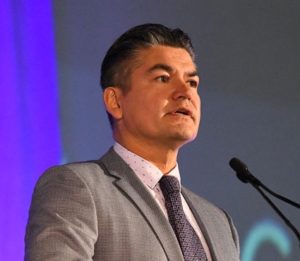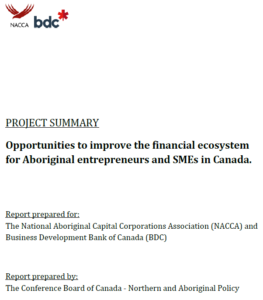NACCA Welcomes Supports for Indigenous Entrepreneurs in Federal Budget 2021
April 26, 2021, Ottawa, ON – The National Aboriginal Capital Corporations Association (NACCA) welcomes the 2021 Budget’s significant investment in Indigenous entrepreneurs. “We commend Canada for recognizing the crucial role of Indigenous entrepreneurs in sustaining thriving communities, and are grateful for the funds the federal government has entrusted to NACCA and the network,” states Jean Vincent, Chair of NACCA’s Board. “The investments we make now will help equip a new generation of Indigenous businesses and economies to thrive and prosper.”
Budget 2021 includes additional investments of $42 million over three years in NACCA’s Aboriginal Entrepreneurship Program, which assists business owners seeking to access capital from the network of Aboriginal Financial Institutions (AFIs). The new funds will also ensure that the AFI network will be ready to issue loans under the Indigenous Growth Fund, a $150 million fund launching later this year. Together, the expanded program and Indigenous Growth Fund will provide Indigenous small- and medium-sized businesses with access to the business capital they have long sought, but too often could not obtain from mainstream lenders.

 Indigenous people share their fellow Canadians’ aspiration for a prosperous and healthy future. “Business development is critical to the well-being of any community, including Indigenous communities,” said Shannin Metatawabin, Chief Executive Officer of NACCA, which represents over 50 Aboriginal Financial Institutions. “Despite tremendous odds and distinct barriers, Indigenous businesses create jobs and opportunities in our communities right across Canada.”
Indigenous people share their fellow Canadians’ aspiration for a prosperous and healthy future. “Business development is critical to the well-being of any community, including Indigenous communities,” said Shannin Metatawabin, Chief Executive Officer of NACCA, which represents over 50 Aboriginal Financial Institutions. “Despite tremendous odds and distinct barriers, Indigenous businesses create jobs and opportunities in our communities right across Canada.”
 Ottawa, March 7, 2017 – The National Aboriginal Capital Corporations Association (NACCA) and the Business Development Bank of Canada (BDC) commissioned a study of the financial ecosystem that provides support for Aboriginal entrepreneurship in Canada. NACCA and its member Aboriginal Financial Institutions (AFIs) provide financing and support to Aboriginal entrepreneurs. The number of AFIs across Canada has grown to over 50 and include Aboriginal Capital Corporations, Aboriginal Developmental Lenders and Aboriginal Community Futures Development Corporations. In addition to BDC’s mainstream financial services and advice, BDC’s Aboriginal Banking Unit offers two specialized streams of financing for Aboriginal entrepreneurs including the “Aboriginal Business Development Fund,” and “Growth Capital for Aboriginal Business.”
Ottawa, March 7, 2017 – The National Aboriginal Capital Corporations Association (NACCA) and the Business Development Bank of Canada (BDC) commissioned a study of the financial ecosystem that provides support for Aboriginal entrepreneurship in Canada. NACCA and its member Aboriginal Financial Institutions (AFIs) provide financing and support to Aboriginal entrepreneurs. The number of AFIs across Canada has grown to over 50 and include Aboriginal Capital Corporations, Aboriginal Developmental Lenders and Aboriginal Community Futures Development Corporations. In addition to BDC’s mainstream financial services and advice, BDC’s Aboriginal Banking Unit offers two specialized streams of financing for Aboriginal entrepreneurs including the “Aboriginal Business Development Fund,” and “Growth Capital for Aboriginal Business.”